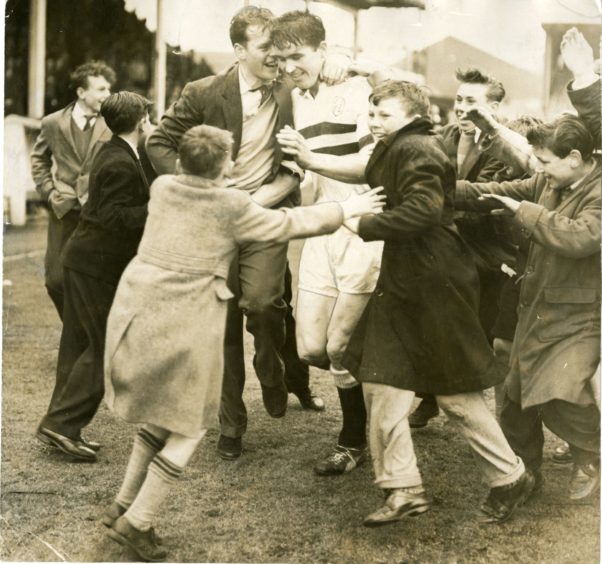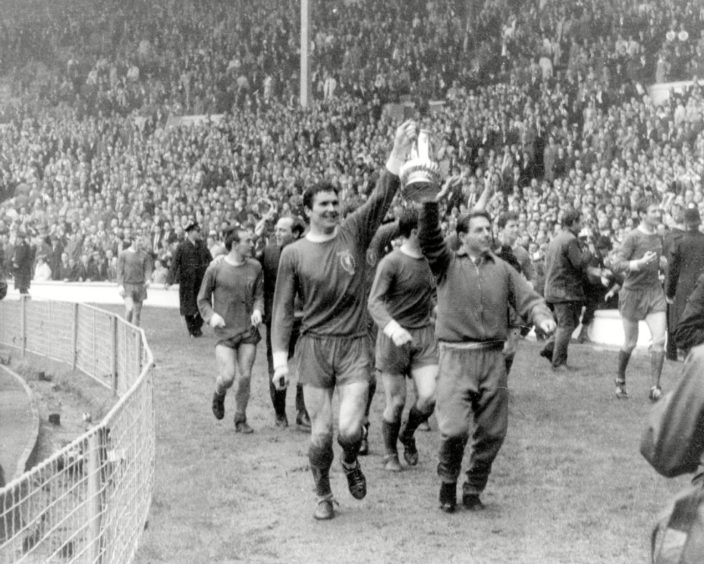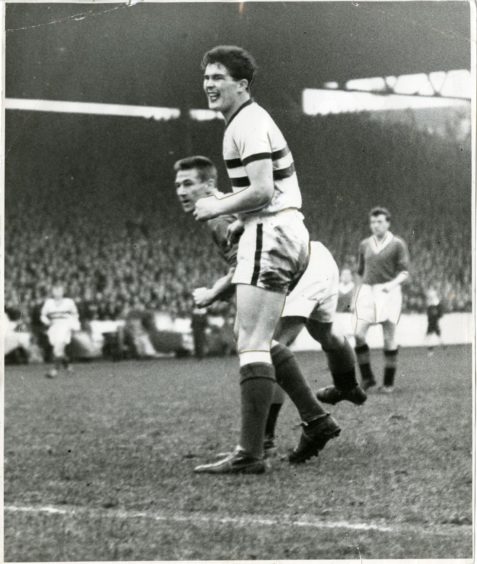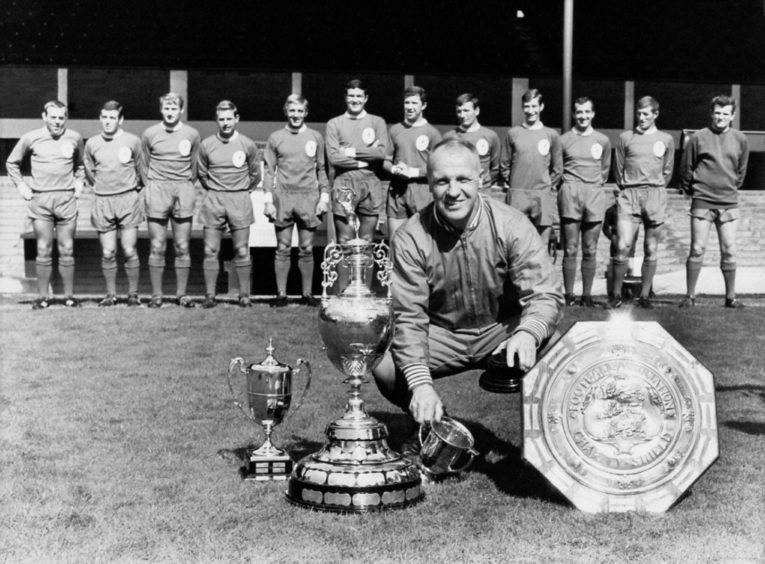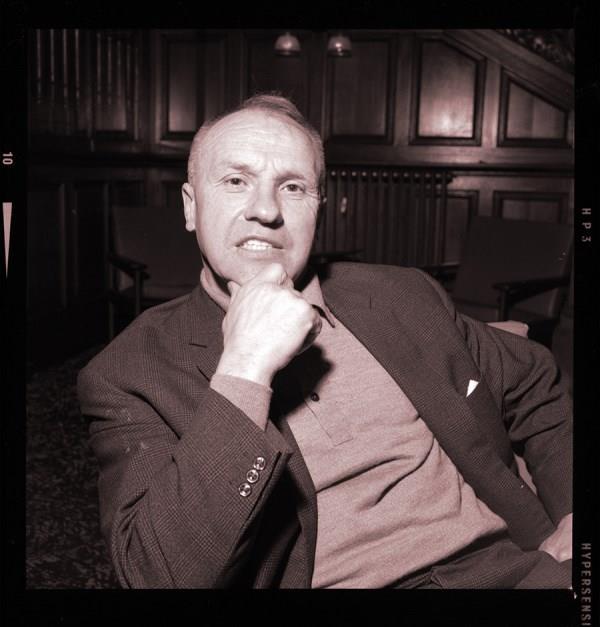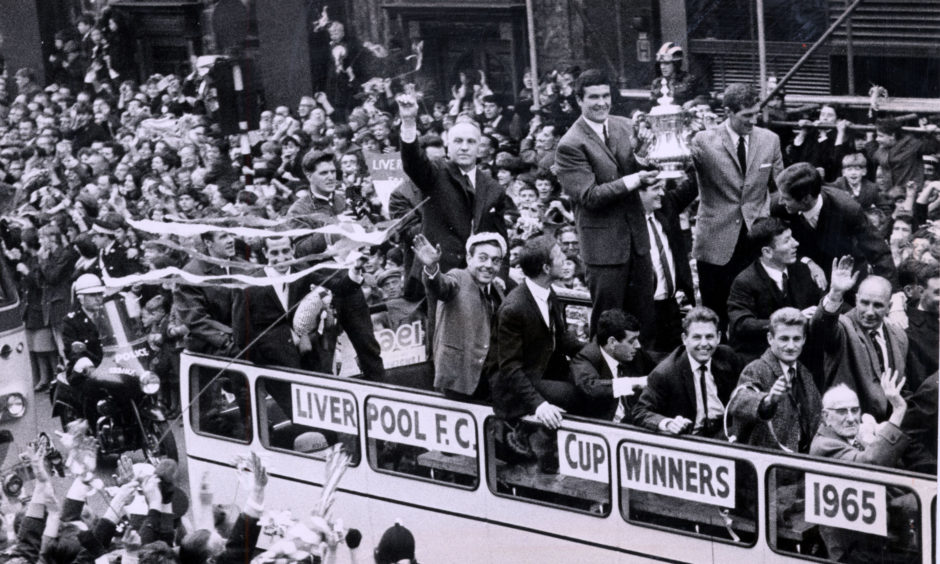
He was the Aberdeen colossus who went to Liverpool, via a slaughterhouse and Dundee United, and made a giant impression during his football career.
And Ron Yeats was even able to get away with breaking Royal protocol when he told the Queen he was “absolutely knackered” after his towering performance in the 1965 FA Cup final where he became the first captain of the Anfield club to lift the trophy.
Yeats, an irrepressible figure who advanced from the Aberdeen Lads Club into the professional ranks, commanded respect from teammates and opponents alike.
Indeed, there were plenty of stories about his grisly strength, not least the time when his manager Bill Shankly was so impressed with his new signing that he told a group of journalists: “The man is a mountain, go into the dressing room and walk around him”.
His intimidating presence explained why he was installed as captain just six months after switching from Tannadice as he took charge of affairs, prompting Shankly to declare: “With him in defence, we could play Arthur Askey in goal!”
Rowdy, as he was known by the supporters, skippered his charges to their first league title in 17 years in 1963-64, but that was just a taste of things to come.
The following season proved one of the most momentous in Anfield history, and not just because it yielded their maiden FA Cup triumph with a 2-1 win over Leeds United as the prelude to the Scotsman’s faux pas while he was collecting the silverware.
Not that the monarch minded. The legend has it that she looked up at him -as most people did – and replied with a smile: “You must be exhausted!”
Just a few months later, Yeats, who had served his apprenticeship as a slaughterman at Aberdeen Cattle Market in Hutcheon Street, led his team-mates on a trip into the unknown when they played their inaugural European match in Reykjavik.
As his former Liverpool teammate and fellow Aberdonian, George Scott, related: “Working at the cattle market was an inauspicious start for a Liverpool legend and I still vividly remember the awful smell and the wailing of the animals.
“It’s also strange to think that he had an unsuccessful trial with Elgin City.
“But once he went to Dundee United, who were Scottish Division Two part-timers at that stage, Ronnie played a huge part in getting the Tannadice side promoted to the top flight and, within a few years, he was starring with Liverpool in England and Europe.”
After their win in Iceland, it was the skipper who famously guessed right when Liverpool eliminated Cologne on the toss of a coin in a replayed quarter-final.
The 1964-65 campaign also saw the club ditch its white shorts, and it was Yeats who was chosen to model the new all-red kit.
His manager was convinced the move would intimidate opponents – and if the sight of his centre-half was anything to go by, he was right.
He thought the world of Shanks
Yet that summed up the warm relationship between these two redoubtable customers, who had toiled in the industrial sector before they turned to football.
Yeats, who only gained two Scotland caps despite being one of the best of his generation, said of Shankly: “He was a wonderful man. Everyone has a different opinion of Bill, but I strongly believe without him coming to our club when he did in the 1959-60 season, that you wouldn’t have seen the trophies and the cups we’ve won.
“Liverpool at that time was falling apart. The stadium was falling apart and the team had been falling apart. They were in the second division for eight years. But this lad took over and everything just went up the roof. He was a lovely, lovely man.”
He said: “I first met Ronnie long before he joined Liverpool – at Aberdeen Lads Club around 1957. I was about 12 years old, and Ronnie had just signed for Dundee United.
“He was attending an event to present prizes to the young players, but even then, he was a giant and especially compared to me, a scrawny primary school pupil.
He was a wonderful talent
“Ronnie and Ian St John became the two biggest pieces in Shankly’s jigsaw. For me, he was the Virgil van Dijk of his day. He dominated every game he played in and, for a big man, his distribution of the ball was excellent and he always seemed in control.
“Off the field, he was a gentle giant and was always willing to give advice and support to the youngsters. We all had the greatest respect for him as a man, player and captain.
“Ronnie often struggled to cope with close-season boredom and it reached the point where he put the word out that he was willing to take up some sort of part-time job.
“One of the directors, Syd Reakes, who later became chairman, heard the banter going round, and shouted to us: ‘I think I know what would suit you in the summer, Ronnie, a lifeguard job on Formby Beach’.
“Tommy Smith responded: ‘That’s no good, Mr Reakes, he’s not a good swimmer’. But Bill Shankly had been standing at Tommy’s shoulder and immediately remarked: ‘That would be no problem, son. Look at him, Ron could wade out to sea for two miles!”
Sad to relate, Yeats has been stricken by dementia and, in his mid-80s, is a very different person from the charismatic individual who wowed the Kop in his pomp.
One wishes him well in the autumn of his life.
